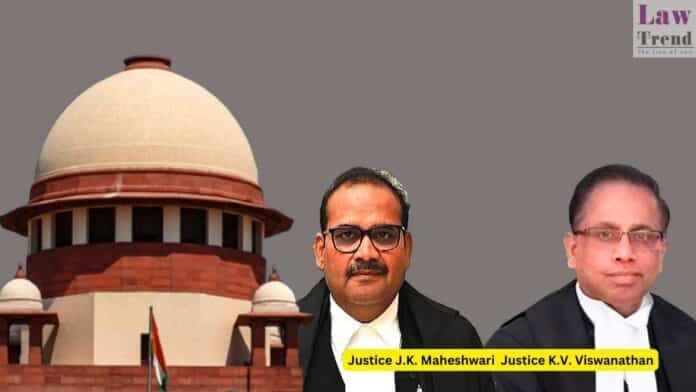In a significant judgment, the Supreme Court of India has ruled in favor of Maitreyee Chakraborty, an Assistant Professor at Tripura University, who was denied confirmation despite satisfactory service and the vacation of a lien on her post. The judgment, delivered by Justice K.V. Viswanathan and Justice J.K. Maheshwari, set aside the decisions of both
To Read More Please Subscribe to VIP Membership for Unlimited Access to All the Articles, Download Available Copies of Judgments/Order, Acess to Central/State Bare Acts, Advertisement Free Content, Access to More than 4000 Legal Drafts( Readymade Editable Formats of Suits, Petitions, Writs, Legal Notices, Divorce Petitions, 138 Notices, Bail Applications etc.) in Hindi and English.




